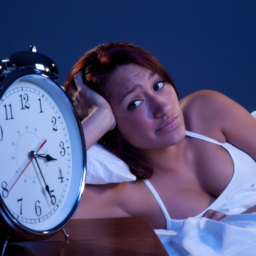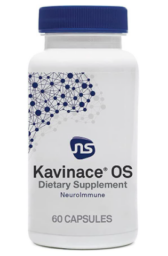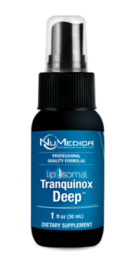
In our hustle ‘till you drop culture, it’s not unusual to meet people who are proud of how little they sleep. But in reality, not getting regular quality sleep eventually takes its toll. Issues like fatigue, depression, lack of motivation, inability to lose weight, and/or brain fog will surface. When someone tells me they only need 6 hours of sleep, I know they are fooling themselves and I am going to have to burst that bubble. I get it – sometimes in our lives we find ourselves burning the candle at both ends. We may feel invincible, until we don’t.
Sleep Needs & Zeitgebers
The number of hours a human needs to sleep has been studied for decades. The American Academy of Sleep recommends an average adult to sleep 7.5-9 hours per night.1 Sleeping at night for at least 7.5 hours is very important for liver detoxification pathways, hormone regulation, tissue healing, memory formation, metabolism, nervous system regulation, and immune function. It’s even more important if you have a chronic health condition such as diabetes, obesity, depression, bipolar disorder, seasonal affective disorder, dementia, and/or an anxiety disorder, as all of these can be negatively impacted by impaired sleep.2
Mollie Eastman, the creator of the “Sleep Is A Skill” podcast, shares that zeitgebers are environmental variables that build our sleep-wake pattern or circadian rhythm. They include such things as light exposure, the timing of and content of meals, the temperature of your sleep environment, and physical activity. When these are misaligned, our sleep trouble begins.3 The most powerful zeitgeber is light.
The Circadian Rhythm & Adrenal Fatigue
We know we are not nocturnal (night-time) animals because our pineal gland secretes melatonin, the hormone that initiates sleep, when the sun sets. When we are in front of blue-light emitting computer screens during the day and into the evening, the pineal gland of the brain misses the cue to release melatonin.4 Another reason we know humans keep a diurnal (daytime) schedule is because an important hormone secreted from the adrenal glands—cortisol—spikes at dawn, waking us up. The less we sleep, the more this cortisol spike misfires. This contributes to adrenal fatigue, or cortisol dysregulation. Do you ever feel tired during the day only to find yourself unable to sleep at night? It’s a cruel irony, but this common complaint of being “wired and tired” is the first sign of adrenal fatigue.
With adrenal fatigue, your salivary or urinary cortisol measurements may show only slight elevation upon waking and through the morning, then drop to their lowest levels midday, and possibly even rise at night. This pattern will determine the degree of fatigue you experience. As you become more stressed, worried, afraid, unsettled, and under pressure, you begin to work your fight-or-flight sympathetic nervous system more and more, to a point where it dominates you. I usually tell people, you are becoming more of a flight animal, and this is not a good thing.

Flight animals such as horses only get about 5 hours of sleep, including just 2 hours of REM sleep. If you’ve been around horses your whole life like I have, you also know that they often sleep standing up. This is so they’ll be able to quickly run away from any predators.5 Horses also sleep as a herd, with one or two staying awake to watch for mountain lions.
Let’s Regulate Your Circadian Rhythm
(AKA How to Not Sleep Like a Horse)
Unlike a horse, humans need to feel sufficiently safe and secure to be able to sleep and sleep well. Your habits are vital to this equation. Here are some top considerations.
LIGHTING:
- Evaluate your blue light exposure. You may need to take measures to change it. Adjusting your computer settings and blue-light blocking glasses can help. An amber or red lens is best at night and some people even use a yellow lens during the day. Iris is one highly acclaimed example of a blue light filter software for your devices.
- Get outside for 10 minutes as soon as you can in the morning after waking. Catching the sunrise or sunset or just going outside frequently for small intervals throughout the day can also help.
- Use red-hued evening lighting. You can use red light bulbs, cover lights with red screens, or use candles and dimmer lights that are lower to the ground.
MEALS:
- Eat your bigger meals at the start of the day. A light dinner can be helpful for balancing your circadian rhythm.
- Wait at least 1 hour post waking to take your first bite and take your last bite 2 to 3 hours before bed.
EXERCISE:
- Exercise is the best way to tone your sympathetic nervous system. When you get your heart rate up, you actually reduce cortisol and adrenaline spikes. For the rest of the day, your parasympathetic (rest and digest) tone is improved.
TEMPERATURE:
- The optimal sleeping temperature in the bedroom for adults is typically 60 to 67° Fahrenheit. Cooling bed toppers may also aid sleep.
- Conversely, daytime cold exposure to the body, such as a dip in a cold pool, or nighttime heat exposure, such as a sauna session or a hot tub soak, can be beneficial.
Finally, Supplements to Help Sleep-Train You
As you are sorting out your circadian rhythm, there are supplements that can help with your “sleep-training.” Melatonin is a great start. As mentioned above, our pineal gland can get out of sync with the appropriate secretion of this hormone, and a period of supplemental melatonin is a safe recourse. Taking 1-6 mg of melatonin twenty minutes before bed for 1-4 weeks can help re-establish your sleep cycle. If you take melatonin and feel nothing, it is likely you need to balance your adrenal response and/or sympathetic nervous system. Supplements like Insomnitol, Tranquinox Deep, and Kavinase OS are designed to support parasympathetic tone, and I’ve seen great success with each of these!
Using supplementation for sleep support for 1-4 weeks, and then taking a few nights off to see if you sleep on your own is a great approach to balancing your circadian rhythm. We don’t want to create dependency; we want to sleep-train you. If you still struggle with sleep, it may be worthwhile to get a sleep study to rule out apnea, and you may want to see your healthcare provider for possible blood sugar or cardiac issues. Sometimes pain or the urge to urinate wakes people. These are things to have assessed to determine the root cause of any sudden wakefulness.
A final note on supplements: Some supplement brands are not 3rd-party tested and mislead customers with their labels. Some vendors carelessly expose their products to extreme temperatures while in transit, compromising their integrity. And some e-commerce platforms feature knock-off versions of reputable brands (!) and do not actually contain the same ingredients or concentrations (!!). Purchasing your products from a reputable vendor such as Peoples Rx ensures that you are getting vetted, high-quality, and professional-grade supplements you can trust.
Don’t Give Up!
Sleep is vital to virtually every animal, so don’t fool yourself into thinking you don’t need all that much of it. With healthy habits, occasional supplementation, and a commitment to supporting your body’s circadian rhythm, you will be getting back to sleep (and staying asleep!) in no time. If that isn’t the case, don’t give up because there’s always an answer. As Mollie Eastman says, “Even if you consider yourself a ‘good sleeper,’ you are likely to have multiple blindspots in areas that could massively impact your sleep and health.” Optimize your sleep and you’ll be well on your way to optimizing your life!
For even more tips and tricks on how to fall asleep and stay asleep, check out these other great blogs:
- Managing Sleep & Stress this Holiday Season
- When Stress Impacts Sleep, Do This
- Sleep On It! Natural Ways to Sleep Better for Good
If you have comments and/or questions about this blog, email us at blog@peoplesrx.com.

Amy Nelson, ND* received her Naturopathic Doctorate from the National College of Natural Medicine in Portland, OR where she studied nutrition, homeopathy, herbal and functional medicine. In addition, Dr. Nelson was the Associate at The IBS Treatment Center in Santa Monica where she treated irritable bowel syndrome and complex food allergies. Dr. Nelson utilizes her experience in natural medicine to address female and male hormonal imbalances, mental health, and digestive disorders. Amy is available for consultation at: DrAmyNelsonND.com.
*Although licensed in other states, Naturopathic Doctors are not currently licensed in Texas. To support licensure efforts, please visit www.txand.org.
References:
- Watson NF, Badr MS, Belenky G, et al.. Recommended amount of sleep for a healthy adult: a joint consensus statement of the American Academy of Sleep Medicine and Sleep Research Society. J Clin Sleep Med. 2015;11(6):591–592.
- Reddy S, Reddy V, Sharma S. Physiology, Circadian Rhythm. [Updated 2023 May 1]. In: StatPearls [Internet]. Treasure Island (FL): StatPearls Publishing; 2024 Jan-. Available from: https://www.ncbi.nlm.nih.gov/books/NBK519507/
- https://www.sleepisaskill.com/about
- Wahl S, Engelhardt M, Schaupp P, Lappe C, Ivanov IV. The inner clock-Blue light sets the human rhythm. J Biophotonics. 2019 Dec;12(12):e201900102. doi: 10.1002/jbio.201900102. Epub 2019 Sep 2. PMID: 31433569; PMCID: PMC7065627.
- https://www.petmd.com/horse/do-horses-sleep-standing
- https://icatcare.org/understanding-the-hunting-behaviour-of-pet-cats-an-introduction/


